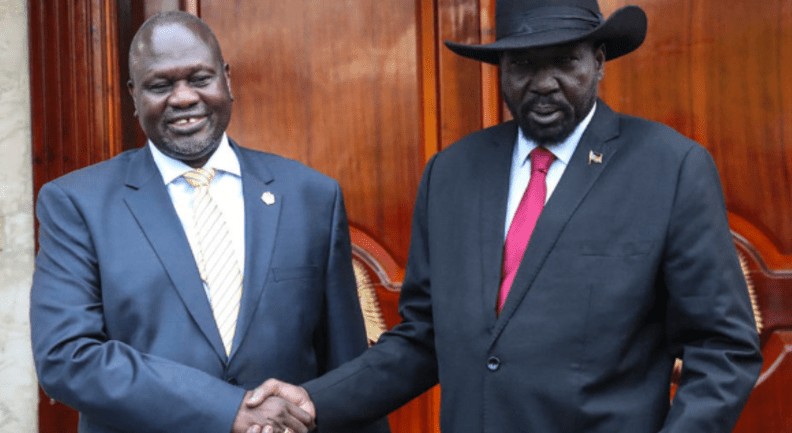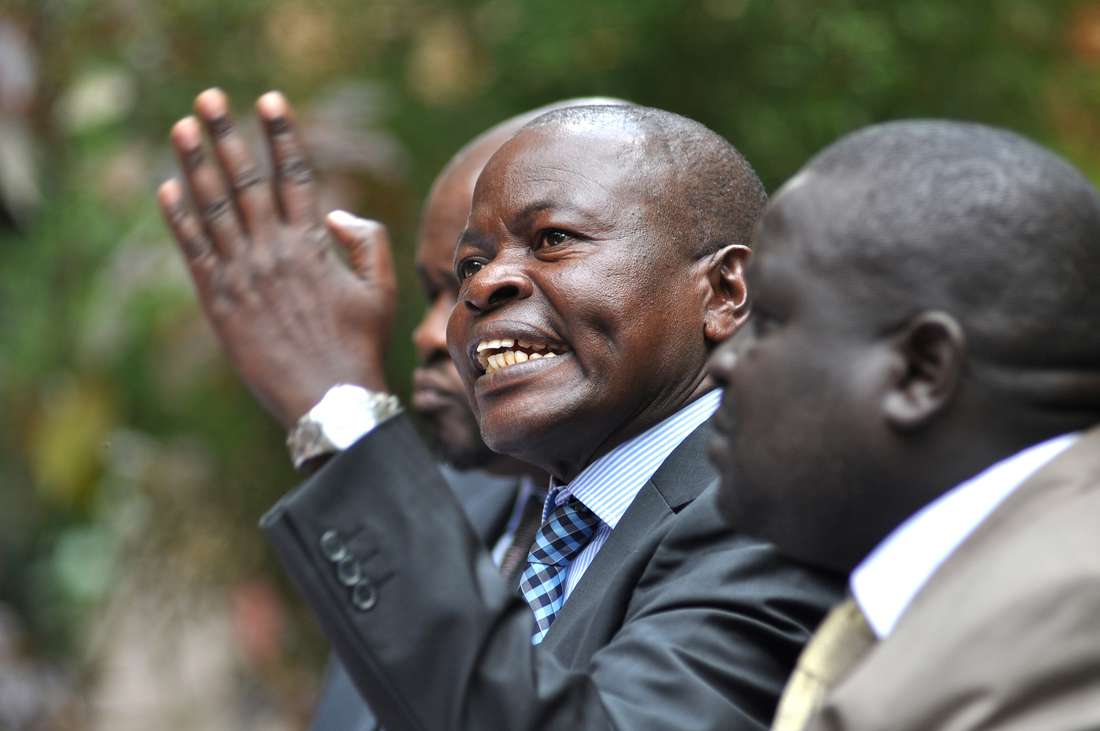South Sudan peace deal at risk amid ceasefire violations, political discord - report

Alleged airstrikes and ongoing ground confrontations severely restricted humanitarian access to thousands of food-insecure displaced people across Upper Nile (Nasir, Ulang, Longochuk, and Panyikang counties) and parts of Jonglei (Canal Pigi and Fangak counties).
South Sudan's peace deal is facing its toughest test yet, with the latest report by the Reconstituted Joint Monitoring and Evaluation Commission (RJMEC) warning that political divisions, ceasefire violations, and deepening mistrust among former rivals are pushing the country's fragile transition to the brink.
The report covering the period between July 1 to September 30 assesses recent developments across political, governance, security, humanitarian, economic, transitional justice, and constitution-making processes that have an impact on the implementation of the Revitalised Agreement on the Resolution of the Conflict in the Republic of South Sudan (R-ARCSS) that came into force on September 12, 2018.
More To Read
- Gunman hijacks aid plane in South Sudan, arrested after safe landing in Wau
- Sexual violence driving mass flight from Sudan to South Sudan: What you need to know
- 1,000 weapon‑wounded patients treated in South Sudan hospitals this year - ICRC
- South Sudan and Somalia eye group stage in FIFA Arab Cup 2025 qualifiers
- From silence to strength: South Sudan women leaders speak out and drive change
- MSF demands protection of civilians after deadly attack in Upper Nile State, South Sudan
The report paints the image of a stalled process marked by a deteriorating political and security situation, an increase in ceasefire violations, particularly involving the SSPDF and SPLA-IO across the Upper Nile, Jonglei, Western Equatoria, Central Equatoria, and Eastern Equatoria States, signalling widespread breaches of the Permanent Ceasefire and Transitional Security Arrangements
"The R-ARCSS faced renewed pressures following the Nasir incident, a major violation of the Permanent Ceasefire, and its aftermath, which triggered arrests, prolonged detention, and judicial processes as well as several political actions detrimental to trust building between the parties and the implementation of the Peace Agreement," the report notes.
Meanwhile, it says the humanitarian situation worsened, driven by ongoing conflict, climate shocks, and cross-border displacement from Sudan.
Whereas the number of South Sudanese requiring humanitarian assistance increased, donor support continued to shrink during the period under review, forcing international agencies to scale down key programmes such as basic service delivery, which is relied on mainly by humanitarian partners.
"During the quarter, the humanitarian situation continued to worsen due to the deteriorating economic, security, and political environment, inflows of returnees and refugees from Sudan, population displacement due to flooding and armed clashes, food insecurity, diseases, climate shocks, and limited access to basic essential services," it said.
The situation was worsened by diminishing funding for humanitarian action and the provision of basic services, mainly covered by the international community and NGOs, triggering a reprioritisation of response plans to focus on the most acute needs, which resulted in a reduction of the number of people being targeted for assistance.
"By the end of September, the Humanitarian National Response Plan (HNRP) had only realised 30 per cent of the $1.7 billion (Sh219 billion) budget required to cover the needs in South Sudan," the report shows.
OCHA's data further shows that over 886,0005 people have been affected by flooding in 26 counties across six states, with Jonglei and Unity accounting for over 91 per cent of the affected population.
As a result, homes, crops, public facilities, and boreholes have been damaged, leading to disruption of livelihoods, further eroding the coping capacities of communities.
"Many roads were also rendered impassable, thus impeding movement and access to those in need. Limited healthcare access, due to submerged roads and damaged facilities, hindered delivery of services and contributed to rising cases of cholera, malaria, and respiratory infections," it adds. "This calls for an urgent demand for mobile clinics, emergency care, and disease surveillance to deliver services and curb the spread of diseases, and protection services for affected communities.
Alleged airstrikes and ongoing ground confrontations severely restricted humanitarian access to thousands of food-insecure displaced people across Upper Nile (Nasir, Ulang, Longochuk, and Panyikang counties) and parts of Jonglei (Canal Pigi and Fangak counties). Notably, areas east of Nasir Town have remained inaccessible for over six months.
Humanitarian organisations have also reported cases of attacks targeting their members in Upper Nile, Jonglei, Central Equatoria, and Unity states, resulting in death, injuries, and looting of supplies.
"In Fangak, 18 metric tons of food were looted by SSPDF forces, and five health and nutrition facilities were vandalised in Pigi Canal County. In Eastern Equatoria, humanitarian operations faced increased threats due to armed attacks and robberies targeting aid vehicles on the Juba–Torit, Torit–Magwi, and Kapoeta–Torit main roads, increasing risks to field staff and logistics. Bureaucratic access impediments continued to delay humanitarian response," the report says.
By the end of August 2025, 1.17 million returnees, refugees, and asylum-seekers had crossed into South Sudan from Sudan since April 2023, with children and women comprising 76 per cent of the refugees.
"The biggest challenge to returnees' resettlement and reintegration remains limited funding, insecurity, and lack of services at the points of final return," the report noted.
The commission has urged the UN to consider all possible measures to hold peace spoilers and/or violators of the RARCSS accountable.
At the same time, it called on the African Union (AU) to expedite the establishment of the Hybrid Court for South Sudan to investigate, and if necessary, to prosecute those bearing responsibility for any crimes committed during this transitional period.
It further called on the Parties to the Agreement and Relevant Stakeholders to cease all forms of hostilities, embrace inclusive dialogue, re-activate the implementation mechanisms of the Agreement, and fully adhere to the Permanent Ceasefire and Transitional Security Arrangements.
Party leaders were urged to desist from taking actions that further erode the political trust and confidence in the Revitalised Peace Agreement and ensure that the political disagreements are resolved through dialogue and disputes are addressed through agreed mechanisms of the R-ARCSS.
The commission further called on IGAD to urgently consider convening an IGAD Council of Ministers meeting on the situation in South Sudan and recommend the convening of the IGAD Heads of State and Government Summit to consider and deliberate on the current situation and decide on timely and appropriate remedial actions.
It also proposed that IGAD prevail on the Parties to restore full adherence to the R-ARCSS, urgently engage in an inclusive, genuine dialogue, and recommit to full implementation of the Revitalised Peace Agreement in letter and spirit within the remaining extended Transitional Period.
Top Stories Today














































